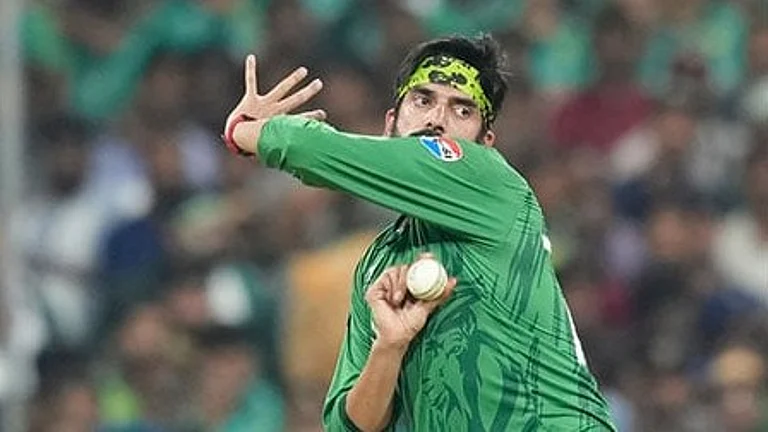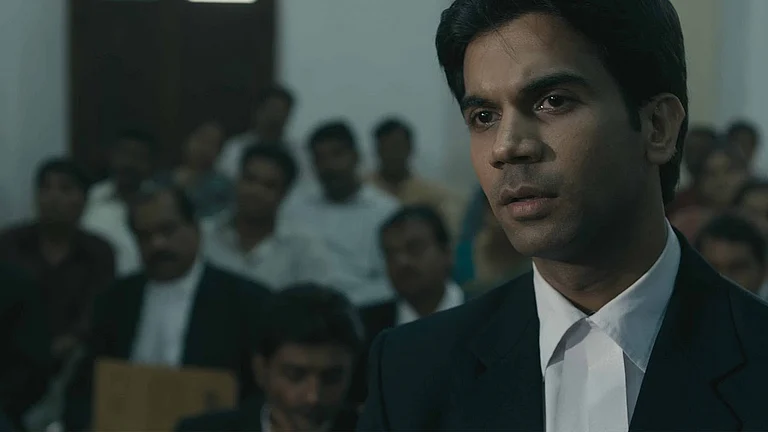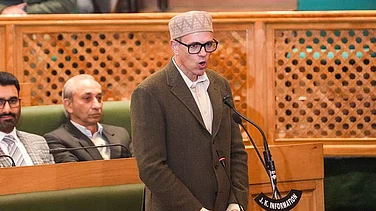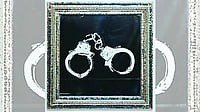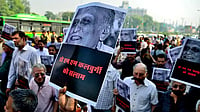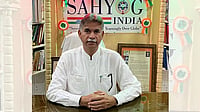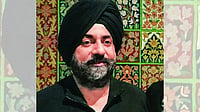Darshan Singh, accompanied by his wife Shahni, was carrying twin baby boys in a wicker basket on his head, as if it contained his entire ancestral wealth. A brimming train was waiting at the station. On seeing the newborn babies and their exhausted mother, people immediately made place for them on the roof. When the train steamed into the night, Darshan noticed that while one baby still moved its hands and legs and occasionally cried, the other was still and had been dead for some time. As the train approached Lahore, someone whispered in his ear, “Sardarji throw the dead baby into the Raavi. He will be blessed.” Darshan, whose father had died and mother gone missing recently, cautiously pulled the basket away from his wife. And then, in the name of Waheguru, threw a bundle into the river. In the darkness, he heard the faint cry of a baby. Darshan looked in terror at his wife. She was clutching the dead baby close to her chest. A storm of voices arose — “Wagah, Wagah…Hindustan Zindabad!”
--Raavi Paar, Gulzar
Set against the backdrop of Partition that coincided with India’s freedom from British colonial rule, the spellbinding narrative depicts Shahni’s motherly devotion that costs her baby’s life amid chaos and barbarities. The partition triggered the largest migration in human history. At least one million people lost their lives in massacres. Tens of thousands of houses were looted and set on fire. Hundreds of thousands of children were lost and abandoned. And between 75,000 and 1,00,000 women were raped and abducted by the rioters.
Gulzar, noted poet and author, was barely 13 at that point in time. Though he migrated to Delhi from Jhelum in Pakistan after partition, the turmoil that he witnessed never left him. “This thought that we haven’t made enough films on the partition has distorted the entire thing inside us. If we had written and spoken more openly, it would have purged out the entire anguish,” Gulzar, who has written iconic lyrics for Pinjar, a movie based on the eponymous novel by Amrita Pritam on the same subject, had once said in an interview. Referring to a gigantic body of literary and cinematic work on Second World War, he had added, “People have grown up, those nations have grown up.”
Partition remains a recurring theme in the literary work of many writers as it seems to be an unresolved issue in the popular psyche on both sides of the border, according to literary experts.
When the ashes of veteran journalist and human rights activist, Kuldip Nayar, were immersed in the river Ravi (referred to as Raavi by Gulzar in his short story) in Lahore by his granddaughter Mandira Nayar and her husband, Ratish Nanda, on October 6, 2018, it reminded me of Nayar telling Gulzar as they walked towards the Wagah border: “If there are no border restrictions on this road, if there is no one asking for a visa or passport and I can simply return after a Pakistan visit, what would I be robbing that country of? There is no dearth of robbers in this country or that country.”
Gulzar documented the conversation in the form of a poignant short-story: ‘Kuldip Nayar aur Pir Sahib’ for his book, Dyodhi. Both in his life and death, Nayar straddled both sides of the India-Pakistan border. His ashes travelled across the border, taking the same road, and immersed in a Pakistani river, Ravi—this was his last wish. He worked all his life to improve relations between the two countries, and established a vigil on the Wagah-Attari border near Amritsar at midnight on August 14-15. He was born on August 14.
Parmeshwar Singh, a short story by Ahmed Nadeem Qasmi, a noted Pakistani poet and writer who Gulzar refers to as Baba, is a compelling account of a five-year-old Muslim boy, Akhtar, who has separated from his mother while migrating to Pakistan. He is discovered by a caravan of Sikhs migrating to India from the other side. Parmeshwar Singh accepts the stranded child as his own son Kartar Singh whom he had lost in the communal riots. While Parmeshwar Singh’s wife and daughter take time to warm up to Akhtar, his unbounded love fails to make Akhtar forget his longing for the separated mother. “Kartar is that wound in my heart which will never heal,” Parmeshwar’s wife would say. A few years later, when Parmeshwar returns Akhtar to the military, he is shot at by the soldiers. On receiving the bullet, Parmeshwar cries out, “Why did you kill me, I had forgotten to cut Akhtar’s hair? I had come here to give Akhtar his religion back!”
Parmeshwar Singh’s counterpart has been portrayed by the grande dame of Hindi literature Krishna Sobti (1925-2019) as Yunus Khan in “Where is my mother?” Yunus, a Pathan, has lost his sister Nooran in the turmoil. Burning with the fury of revenge, he is hell-bent upon killing all the ‘Kafirs’ and even willing to sacrifice himself for his country. The writer has painted a horrible picture of the partition violence: “Yunus Khan watched the flames as they leapt up from the villages burning all round. He had heard those screams before. People always scream when their houses are set on fire. He had seen children thrown into fires... and women and men. . . .He had seen neighbourhoods burn all night and had seen charred, bodies in every street . . . cries of ‘Allah-ho-Akbar’ and ‘Har-Har-Mahadev’.” When Yunus comes across an unconscious and wounded girl, he sees his own sister Nooran in her and takes her to hospital. On gaining consciousness, the girl attacks Yunus with bare hands, shouting, “You are a Muslim... You will kill me as well…Where is my brother? Where is my mother?”
Lajwanti by Rajinder Singh Bedi (1915-1984), a highest regarded Urdu short-story writer, talks about emotional transformation of an abusive husband Sundarlal after his wife, Lajwanti, goes missing during the upheaval. While Sundarlal campaigns for the repatriation of abducted women, the story narrates the cruelty of not just abductors but of the husbands and family of the abducted women.
Gurbhajan Gill, a noted Punjabi poet and writer, narrates how men from diverse religious backgrounds extracted revenge by raping and abducting women from other religions.“Sikh women in the custody of Muslim families had become pregnant. And those Muslim women who were held captive in Sikh families too were pregnant. When these women are brought to the border and announcements are made for their exchange, their mothers and fathers refuse to acknowledge them as their daughters,” he says, struggling to fight back tears. “Can you imagine the kind of weight they carried while returning to the places they never wanted to reside?!”
Pinjar, a 1950 Punjabi novel written by noted Punjabi poet and author Amrita Pritam, also tells the story such women. “The streets ran with blood and were said to be cluttered with human corpses, with no one to bury or cremate them, the stink from putrefying flesh hung in the air spreading pestilence. In some cities, barricades were put up to divide the Muslim zones from the Hindu...Hamida’s ears burned with rage when she heard of the abduction of Hindu girls by Muslims and of Muslim girls by Hindus. Some had been forced into marriage, some murdered, some stripped and paraded naked in the streets,” reads a passage from Pinjar, that has been translated by veteran writer and journalist Khushwant Singh (1915-2014). “Thus passed August 15 of the year 1947.”
Khushwant Singh’s Train To Pakistan is another novel set during the Partition that explores love, religion, communal riots, and human trust. It’s a story about a small village, Mano Majra, where no one is pure evil or an angel. Similarly, Train to India by Maloy Krishna Dhar is a moving account of tragedies that befell Bengal during the partition.
Tamas is another classic novel by Bhisham Sahni (1915-2003), who had migrated to India from Pakistan during Partition, that opens with communal carnage in undivided Punjab. It remains a chilling reminder of the consequences of communal prejudices and religious fundamentalism.
“A Prostitute’s Letter: To Pandit Jawaharlal Nehru and Qaid-e-Azam Jinnah” is a epistolary short story written by noted Urdu writer Krishan Chander (1914-1977), narrates the plight of two unnamed sex workers, one Hindu and the other Muslim. Both of them have been forced into prostitution after they lost their families to the communal violence triggered by the Partition.
Saadat Hassan Manto (1912-1995), one of the greatest stars of Urdu literature, has thematized the partition and its aftermath in many critically acclaimed short-stories.
His short stories, Anjam Bakhair, Khol Do, Sharifan and Khuda Ki Qasam establish how conflicts spur sexual violence against women. Deeply disturbed by the brutal and bloody events, Manto furiously cursed the partitioning of the country through a borderline arbitrarily drawn by a British barrister called Sir Cyril Radcliffe.
Manto’s magnum opus, Toba Tek Singh, which has inspired several poems and plays, is one such story that depicts how the Partition left feelings of revolt in him. His short story, Mootri, is set in a public urinal — which is not far from Congress House and Jinnah Hall in Bombay: On the walls of urinal there was no space left for a graffiti. The words “Screw the Pakistan of the sisters of Mussulmans!” and “Screw the Akhand Hindustan of the Mothers of Hindus” had faded. Below, someone had scribbled, “Screw the Hindustan of the mothers of both!”








